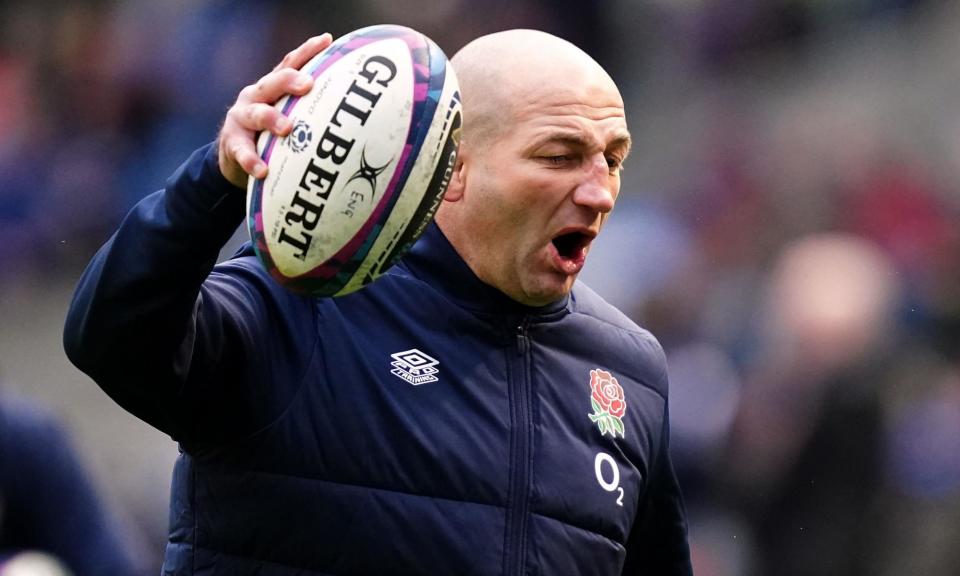Borthwick demands explanation for England’s ‘hot potato’ collapse

Steve Borthwick wants answers from his England players as to why they fell apart against Scotland, and he will conduct a grisly postmortem this week with Maro Itoje blaming the capitulation on switching to “tip-tap rugby” and playing “hot potato” at Murrayfield.
England will hold a “thorough and honest” review when they reconvene in York on Wednesday and Borthwick admitted he could not understand why his players let slip a 10-0 lead to succumb to a fourth successive Calcutta Cup defeat. George Furbank’s opening try gave England the perfect start but a litany of errors followed and they turned the ball over 22 times across the match.
Related: Scotland end England grand slam hopes with Van der Merwe hat-trick
Borthwick said he shared supporters’ frustrations. England now face Ireland and France and the distinct possibility of finishing the Six Nations with two wins and three defeats for the fourth year in a row. He intends to quiz his players when they meet again with Itoje among the first to offer his view.
“We probably didn’t stick to the gameplan,” Itoje said. “We started playing tip-tap rugby. We want to be a team that plays direct and is confrontational. Particularly the second half of the first half, we didn’t do that. We started playing hot potato and that is not what we want to do.
“We need to stay disciplined to the plan we want to impose. In every game you have a plan and then the game throws challenges at you. The challenge is to impose your will even when those challenges are thrown at you. When the challenges were thrown at us, we deviated from the plan.”
Although Borthwick does not immediately come across as a screamer and shouter, Itoje conceded he is a “stern” head coach and the players are braced for an uncomfortable debrief.
Borthwick said: “We have to look at what changed after [the first 20 minutes]. I will chat to the players, we will do that fully. What’s going to be interesting to me and what I want when we debrief the players, is after that first 20, why we went and played in a manner that was not the way we played the first 20. What changed? What in the thought processes altered to try and do something different, that led to that spike in the error rate? And I’ll only be able to understand that once we have talked to the players and listened to them about how it was on the grass.”
Related: Borthwick must decide whether to stick or twist with this England side
The explanation that England deviated from the gameplan after Scotland had struck with Duhan van der Merwe’s first try rings true for a side bedding in a new defensive system and looking to be more expansive in attack but, truth be told, elementary mistakes plagued Borthwick’s side throughout.
“Some of them are just unexplainable why you drop the ball cold sometimes,” the fly-half George Ford said. “Some of it is the reality of being in the middle of a Test match and everything is 100mph and there’s pressure on you and the execution is not as good as it needs to be. But we are not making excuses because it was nowhere near good enough.
“It hurts a lot. I think we turned the ball over 20 times in the game. You have next to no chance of winning the game if you turn it over that many times.”
England came into the match on Saturday on the back of eight wins in nine matches but their limitations are illustrated by the fact they have not scored more than two tries in a game since putting Chile to the sword last September. Borthwick and his players talk of building but supporters are growing tired of hearing it after years of Eddie Jones adopting a similar mantra.
“There’ll be experiences unfortunately that are painful like [this], and why we didn’t stop it and address it, within the game, on the pitch there and actually put things right, that’s going to be a discussion we have with the players, about how we deal with that,” Borthwick said. “But as we develop the team, there’s going to be bumps in the road. I would share the feelings of all the supporters. That was not good enough.”

